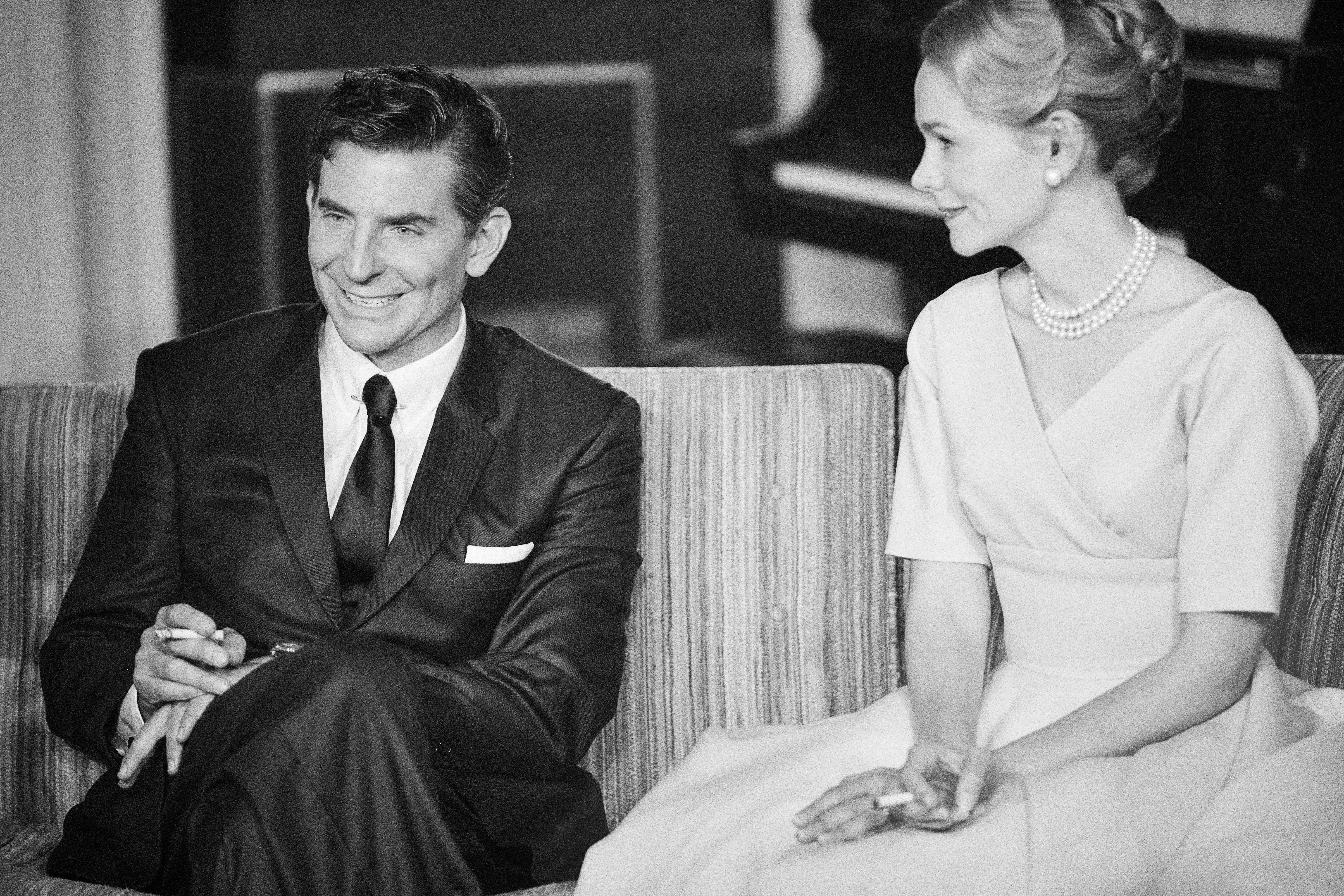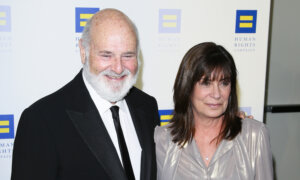Commentary
One of the most advertised films of late 2023 was “Maestro.” From the title, it’s obvious that this movie is about a famous musician, although what type is unclear. These musician biopics often choose a more recognizable title, such as something with one of the topic’s names in it or the title of a famous composition. In the case of this film, I would have guessed that it would be called “Lenny” or “Bernstein.”
Yes, in case you haven’t guessed and aren’t familiar with the film, “Maestro” is a biopic about the famous American composer and conductor Leonard Bernstein. This Netflix film is the first movie about Bernstein’s life story, but it certainly isn’t the first of this type of movie. Since the 1940s, Hollywood has loved making movies about the lives and careers of famous musicians, both living and deceased, albeit while taking a lot of liberties with the facts.
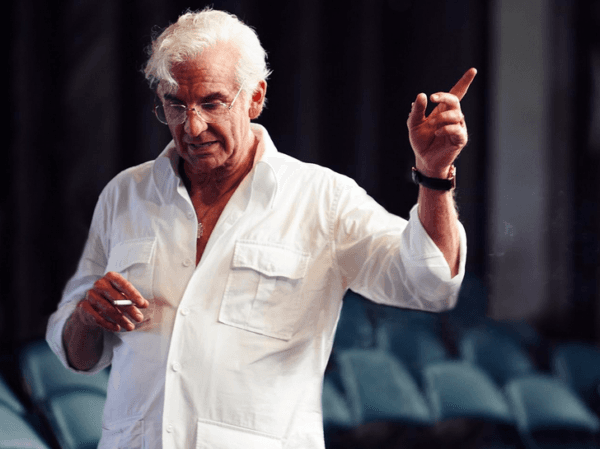
Leonard Bernstein (Bradley Cooper) in "Maestro." (Amblin Entertainment/Netflix)
The Latest
“Maestro” was released on Netflix on Dec. 20, 2023, after a limited theatrical release on Nov. 22. It was directed by Bradley Cooper, who also co-wrote it with Josh Singer and was one of six producers, including Martin Scorsese, Steven Spielberg, Fred Berner, Amy Durning, and Kristie Macosko Krieger. He also starred in it as Bernstein. It also stars Carey Mulligan as his wife.
The film starts when Leonard Bernstein is 70 years old, being interviewed about his career. It then goes into a flashback, showing the earlier events of his life. In 1943, he is the assistant conductor of the New York Philharmonic at age 25, and he has the chance to make his conducting debut when another conductor falls ill. He receives an amazing response and becomes very famous. Meanwhile, he falls in love with an aspiring actress, Felicia Montealegre (Mulligan), and they end up getting married and having three children. During the 1950s, Bernstein’s fame grows, and his family grows in prestige. However, the happiness of his marriage and family life is threatened by his extramarital affairs, drinking, and drug use.
In this film, Bradley Cooper bears a striking resemblance to Leonard Bernstein. This isn’t just natural, however. He used a lot of makeup and even a prosthetic nose to achieve this look. Since the advance publicity first revealed his appearance, some people have been criticizing the casting of a Gentile actor Cooper with prosthetics to make him look Jewish. A similar situation involved the casting of a much earlier biopic about an American music legend, “Rhapsody in Blue” from 1945.
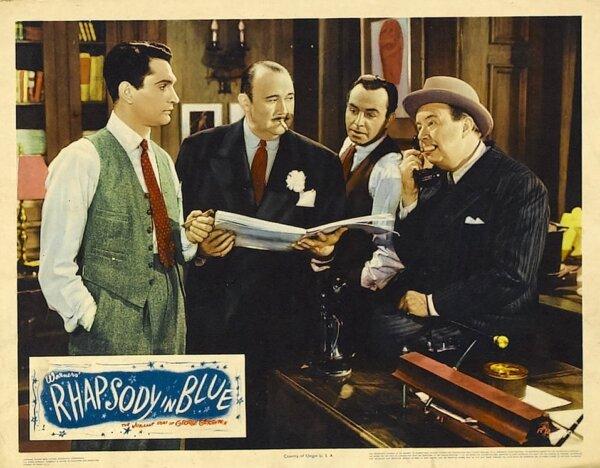
Lobby card for “Rhapsody in Blue” from 1945. (MovieStillsDB)
The Greatest
“Rhapsody in Blue” is about George Gershwin, starring Robert Alda as the famous composer. It was released on Sept. 22, 1945, directed by Irving Rapper, and produced by Jesse L. Lasky. The screenplay was written by Howard Koch, Elliot Paul, and Harry Chandlee, with a story by Sonya Levien. This Warner Bros. production was actually filmed in 1942–43, but it was only released to servicemen at the time.
Brothers George (Alda) and Ira Gershwin (Herbert Rudley) grow up in the Lower East Side of New York City. Although they are poor, their mother, Rose (Rosemary DeCamp), works hard to buy a piano and give her sons music lessons. George shows amazing proficiency on the piano, and as he gets older, he gets jobs in vaudeville and at a music store as he dreams of becoming a composer. Along the way, he meets a pretty young singer, Julie Adams (Joan Leslie), who ends up being his sweetheart. Although his original compositions get him in trouble at first, he ends up getting a two-year contract with a music publisher, which leads to Al Jolson popularizing his composition “Swanee.” Before long, George is on his way to success as a popular composer, with Ira writing his lyrics. However, his beloved music teacher, Professor Franck (Albert Bassermann), hopes he will turn his talent to more serious compositions instead of focusing on popular music.
Leonard Bernstein and George Gershwin are probably the two greatest musical figures of 20th century America. Both were Jewish-Americans of Eastern European descent, yet both were played by Gentile actors. “Maestro” is told in a flashback format, beginning when Bernstein is an old man, while “Rhapsody in Blue” tells Gershwin’s story chronologically. “Maestro” sticks closer to the facts about Bernstein’s romantic life, including his marriage to his only wife, Felicia Montealegre; Gershwin had a ten-year romance with a female composer, Kay Swift, but the film created two fictional love interests instead. Both films feature many other acclaimed musicians as characters because they were friends, colleagues, or collaborators of the protagonists. Neither of the leading actors could match his characters’ musical skills, so professional musicians were needed to create the music used in the soundtrack. All George Gershwin’s piano playing was dubbed by Oscar Levant, a friend of Gershwin’s in real life who also played himself in the film. The orchestral music, performed by the London Symphony Orchestra, was conducted by Yannick Nézet-Séguin, who also served as Cooper’s conducting coach.
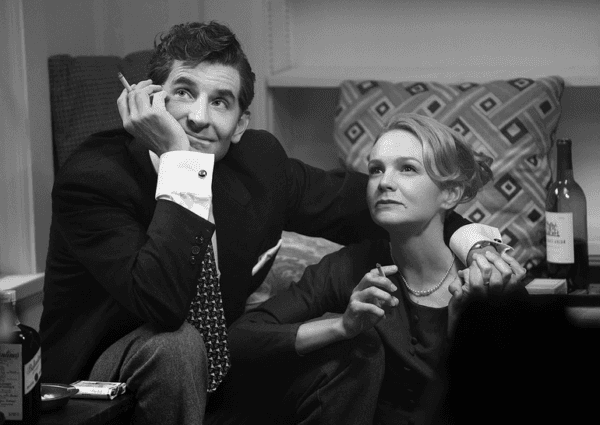
Leonard Bernstein (Bradley Cooper) and Felicia Montealegre (Carey Mulligan) in "Maestro." (Amblin Entertainment/Netflix)
The Music Goes On
Although “Rhapsody in Blue” and “Maestro” are both biopics about American music giants, they have very different basic qualities. The difference isn’t just that one is about a man who died in his 30s instead of a man who lived a long life. It’s the difference in filmmaking of the 1940s and the 2020s. Each movie is a product of its time. “Rhapsody in Blue” is a straightforward film, all in black-and-white, which glorifies the Gershwin’s compositions while romanticizing the life of the man behind it. “Maestro” is a sweeping drama which transitions from retro black-and-white to color as years pass, using the music as a background to this historic figure’s controversial personal life. Since the latest film is rated R, it relies heavily on profanity, obscene scenes, and even drug use to advance the plot.
“Maestro” may win a lot of awards, but it will never approach the wholesome simplicity of “Rhapsody in Blue,” a movie with clean language, moral relationships, and decent characters which devotes nine minutes of screentime to playing the whole title composition. Only a Golden Era movie with actors and a director of this caliber could keep it interesting and engaging.



